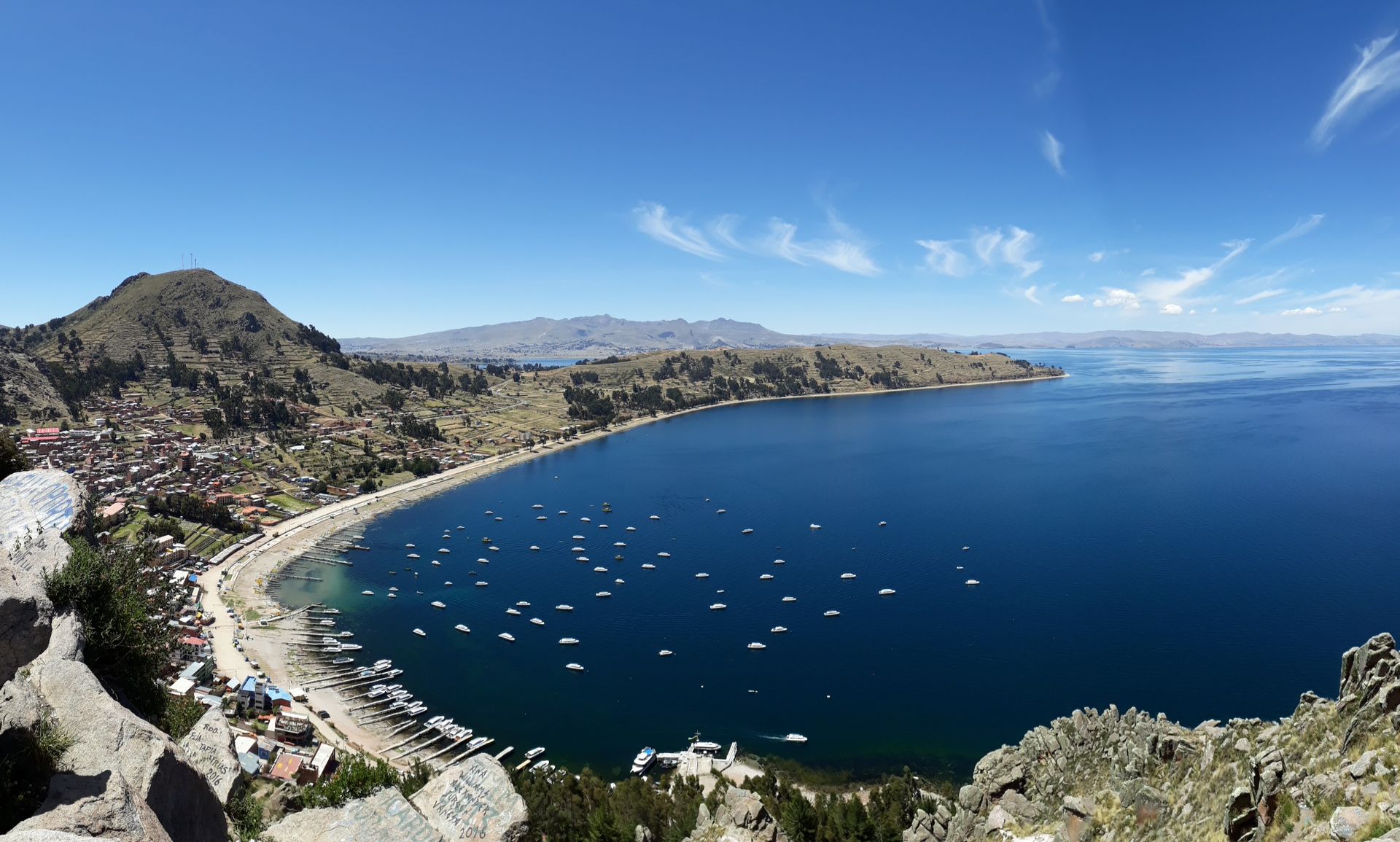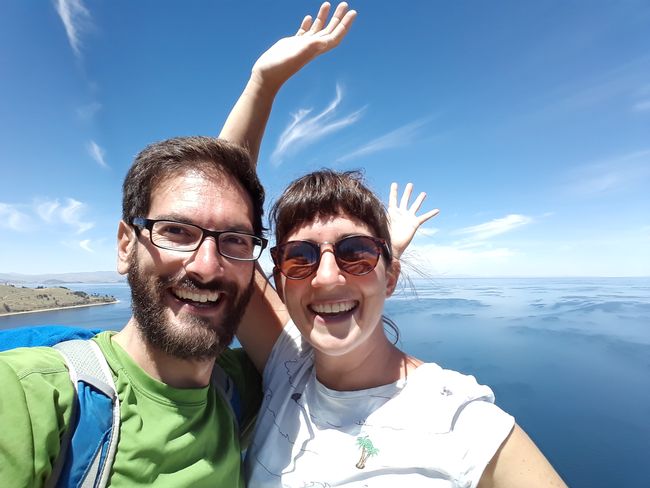From Auckland to Lake Taupo
Published: 23.03.2017
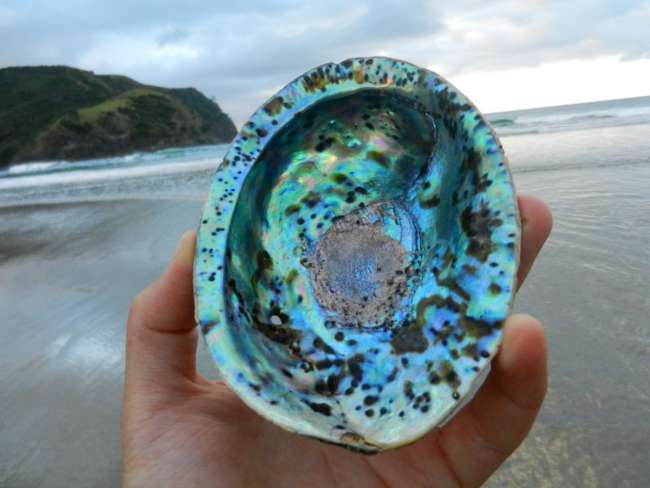
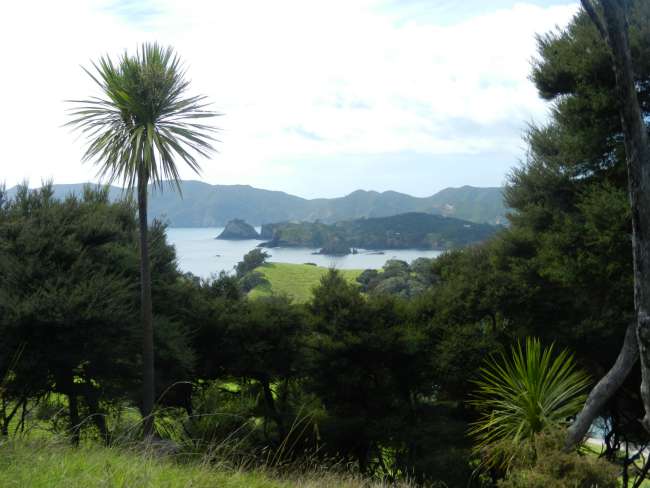
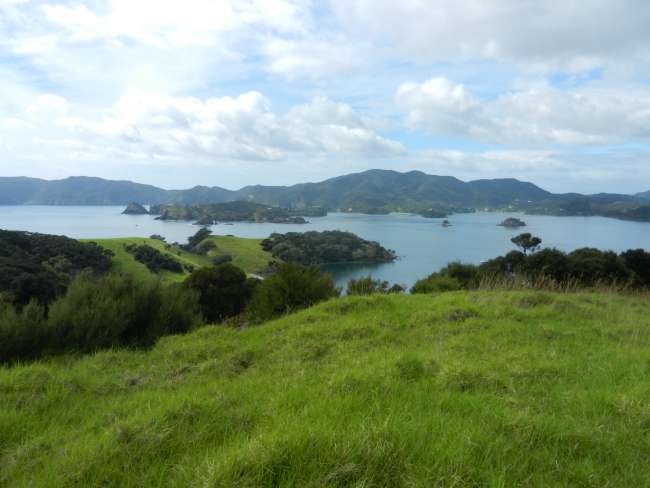
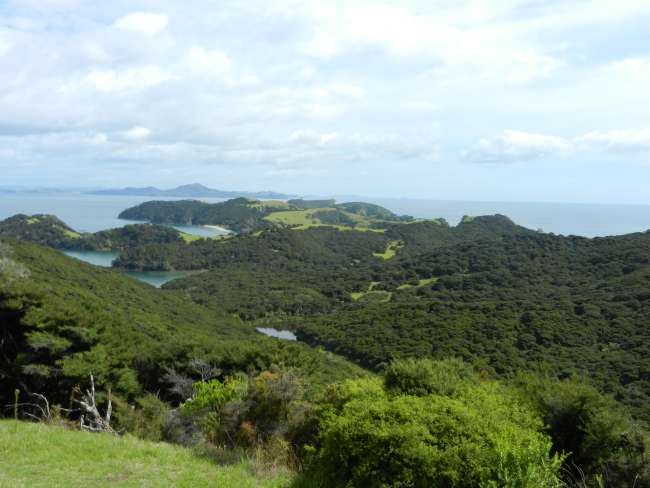
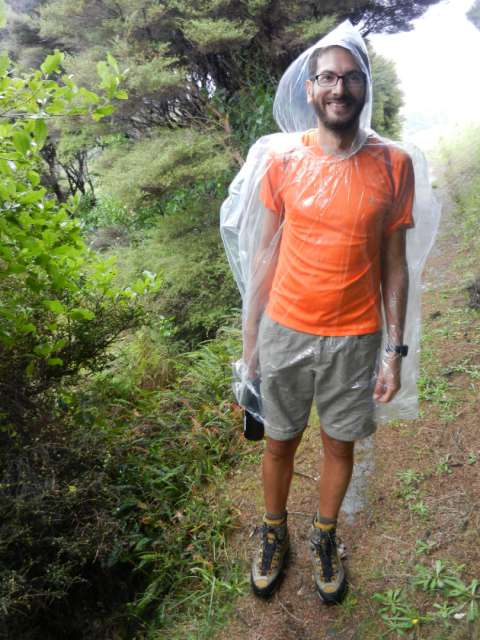
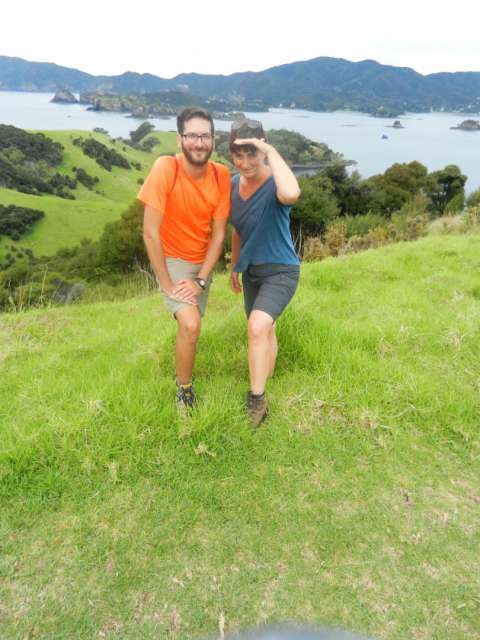
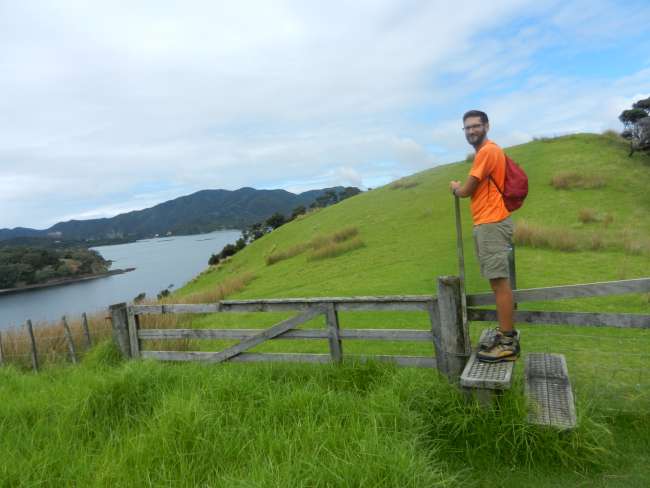
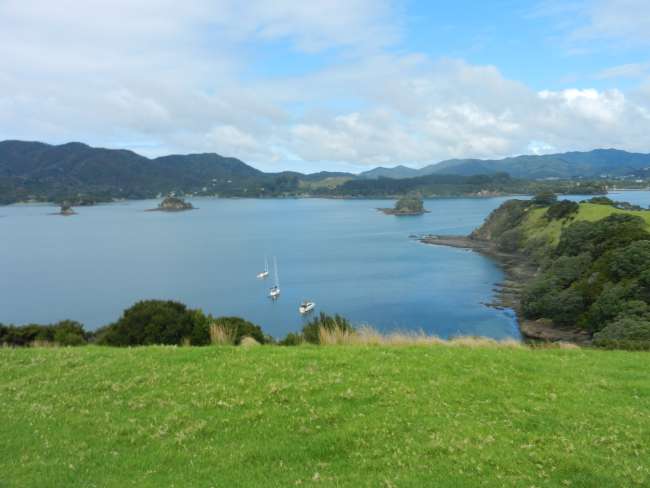

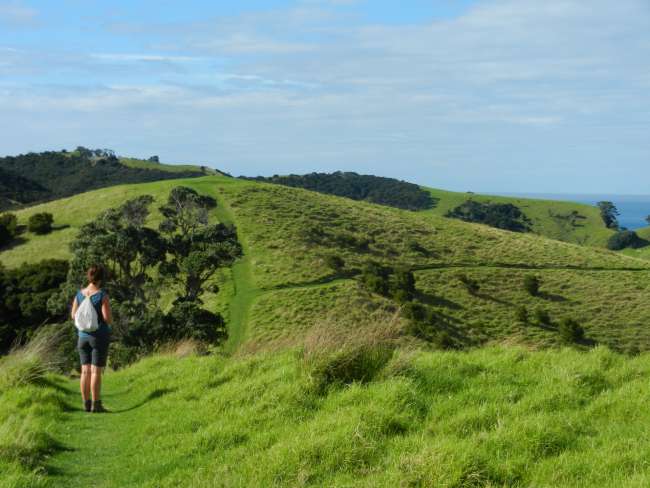
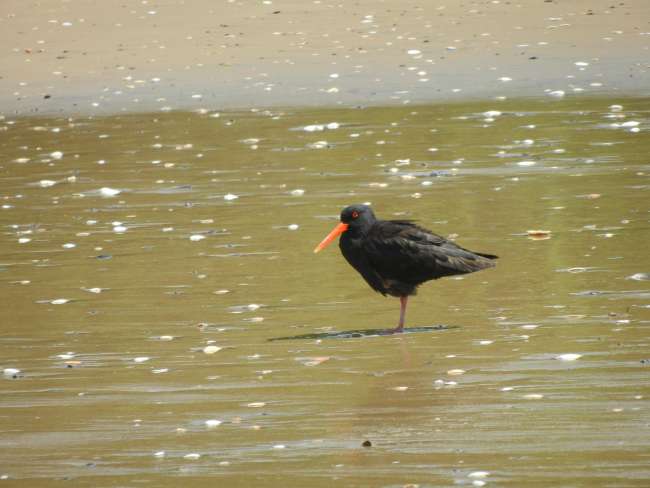
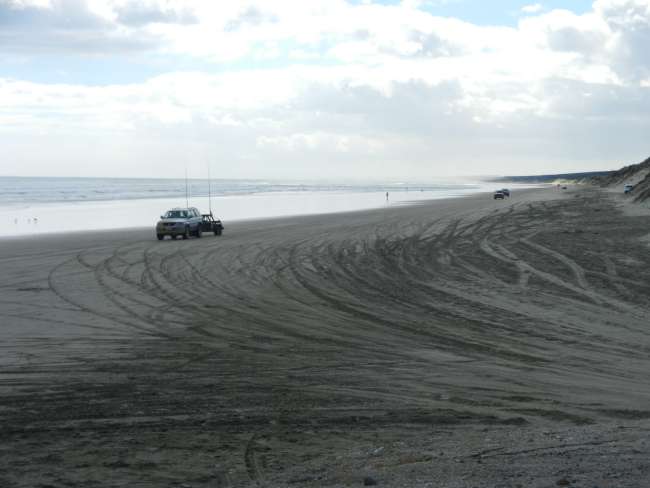
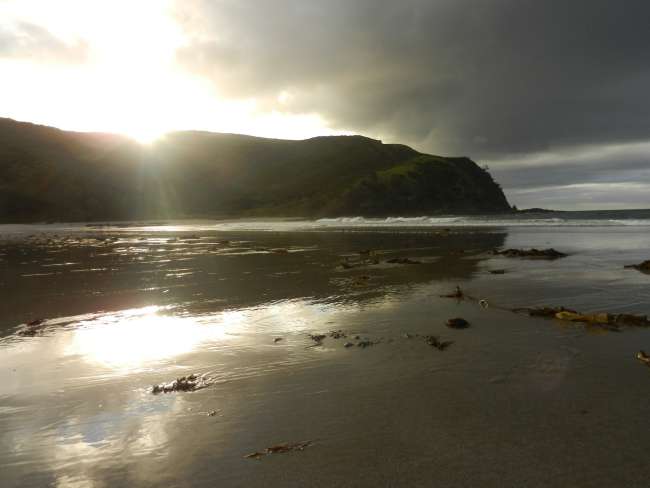
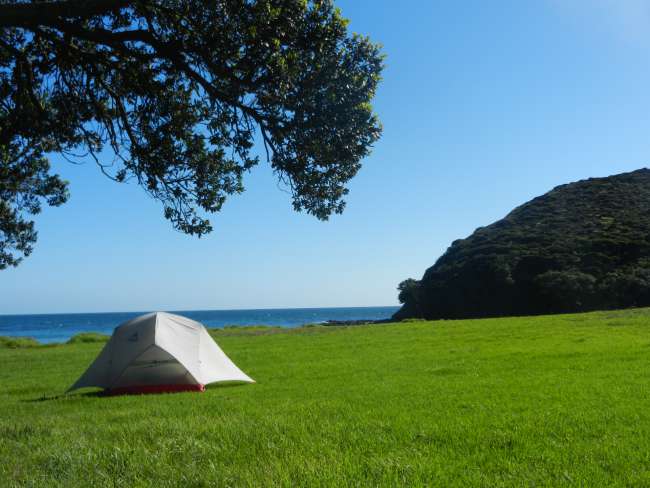
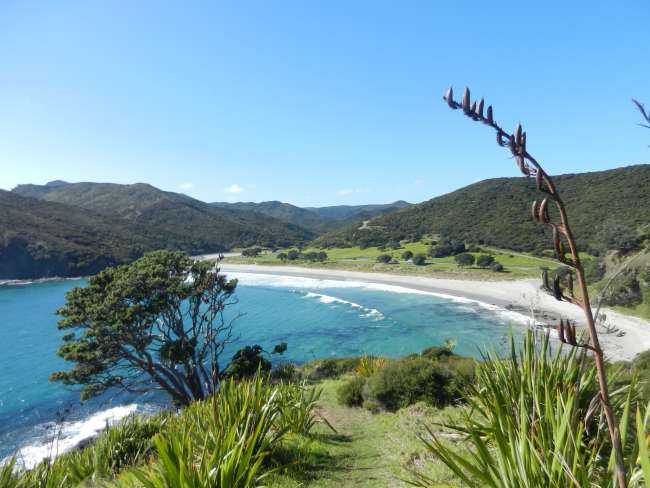
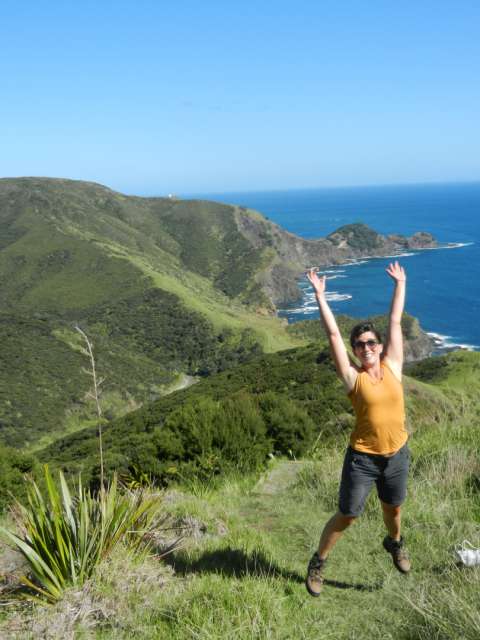
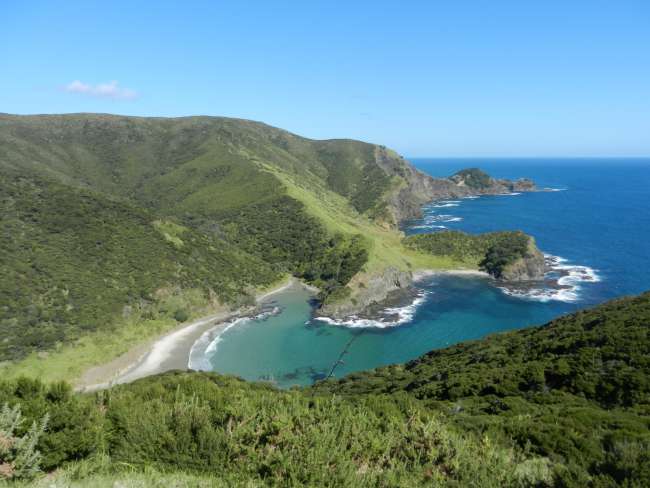
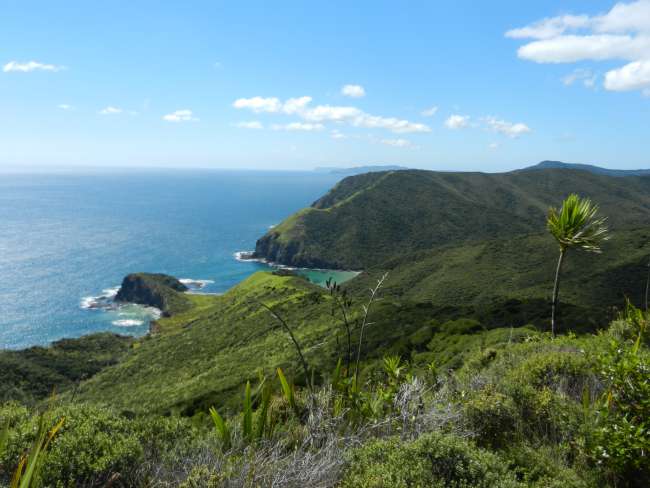
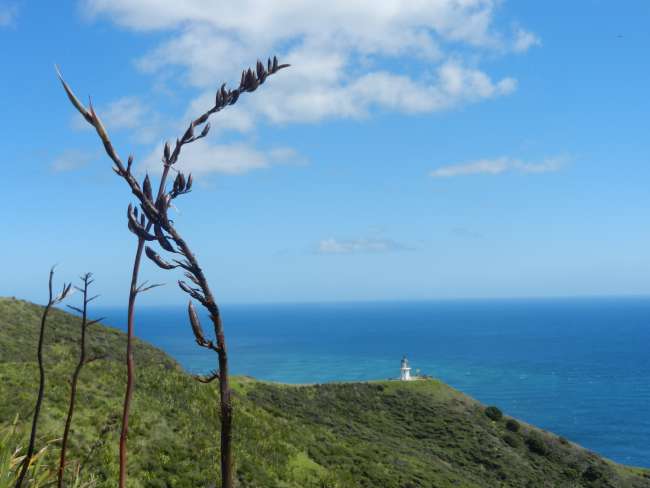
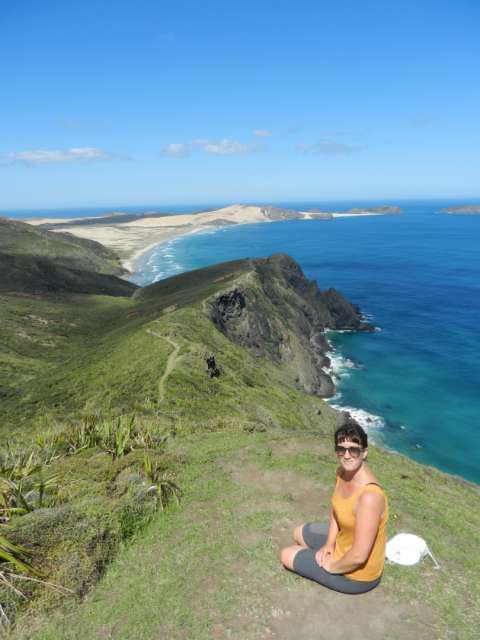
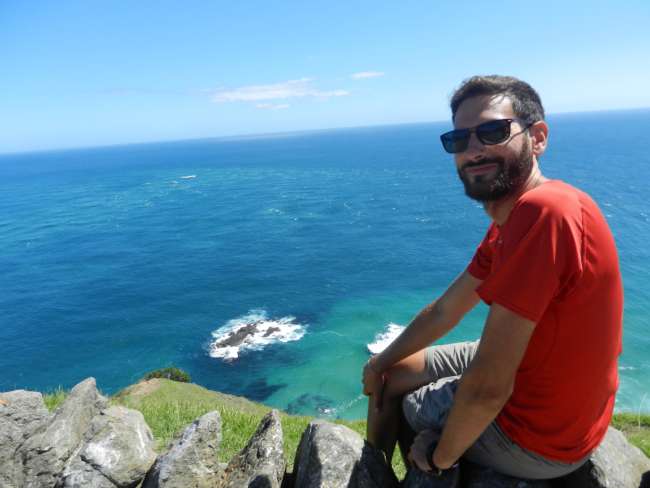
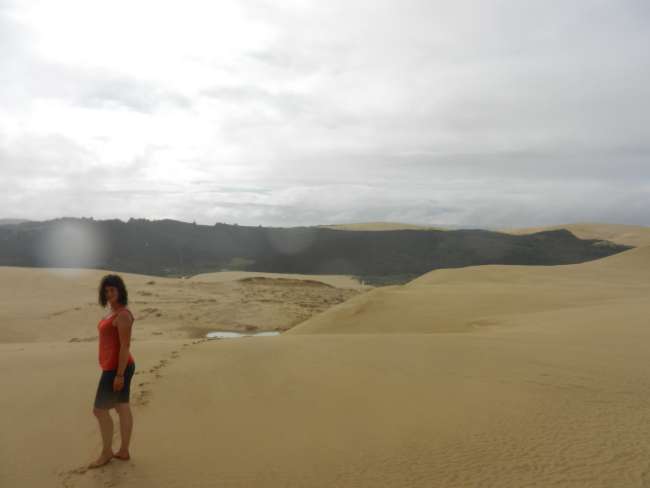
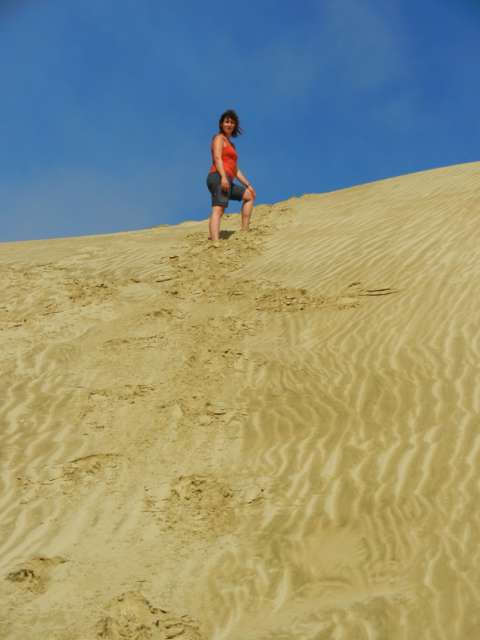
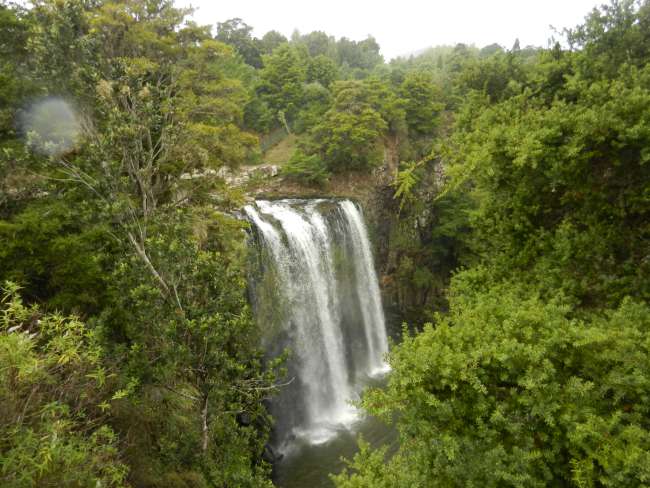
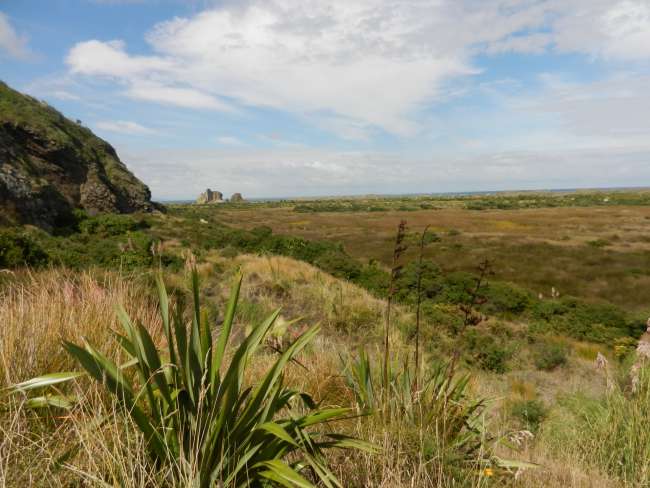
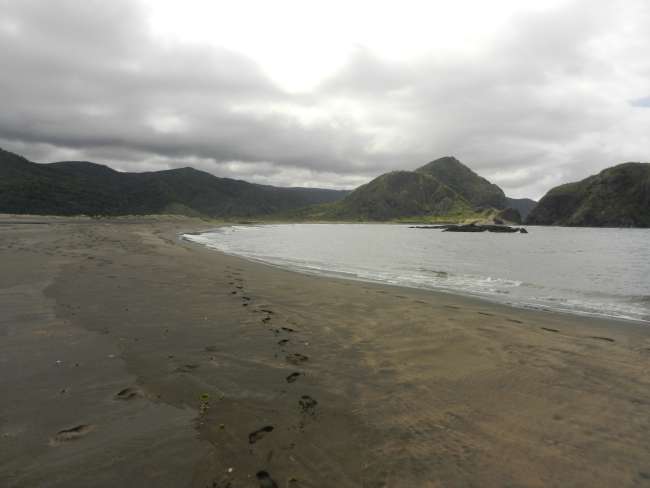

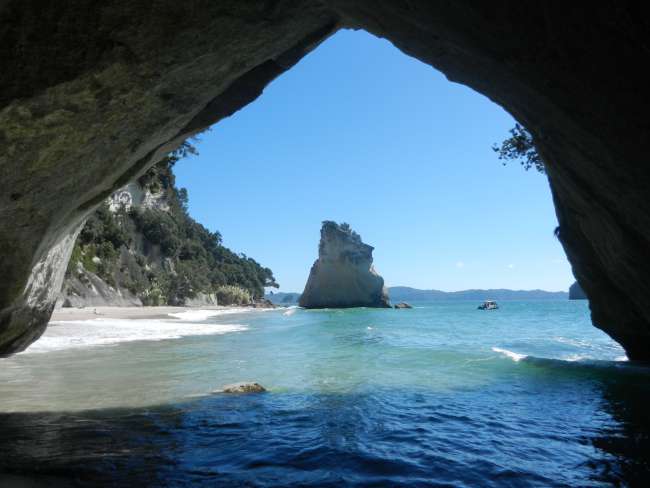
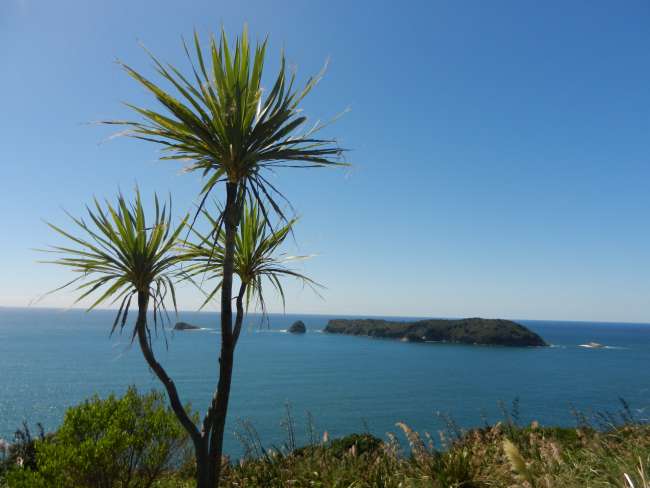
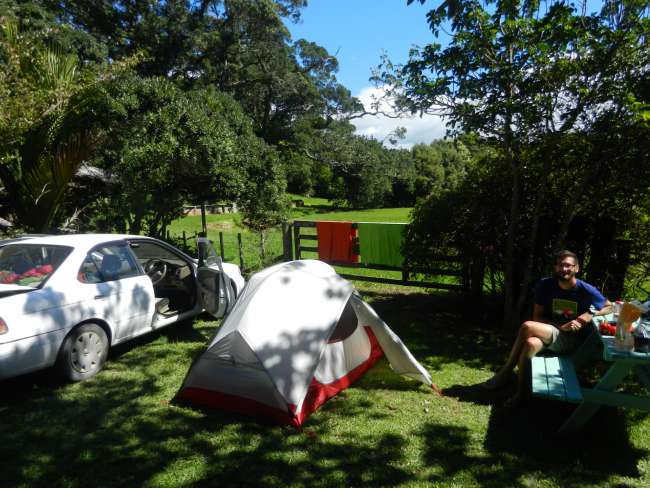
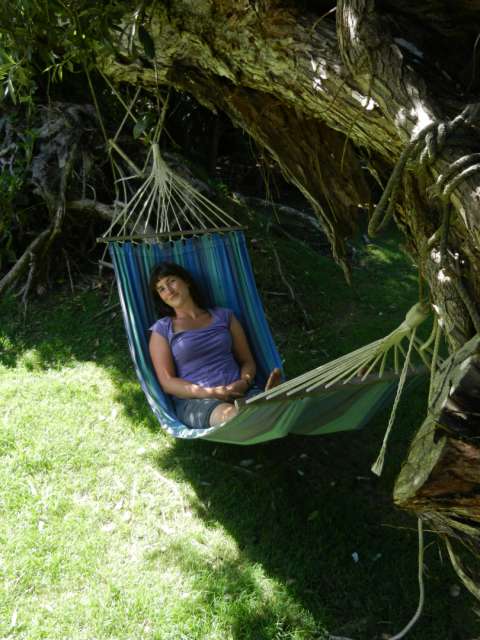
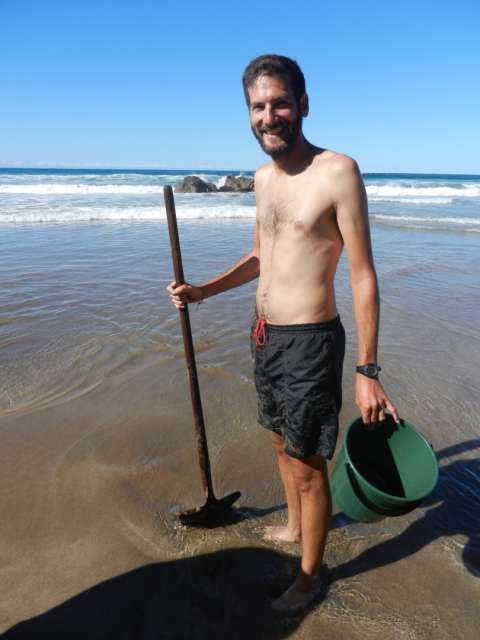
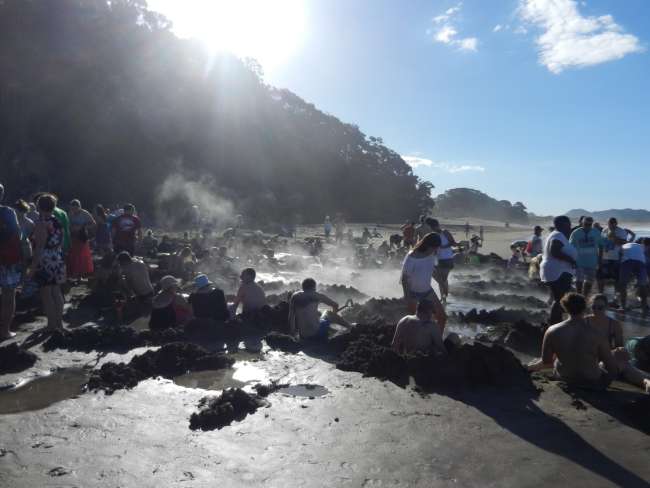
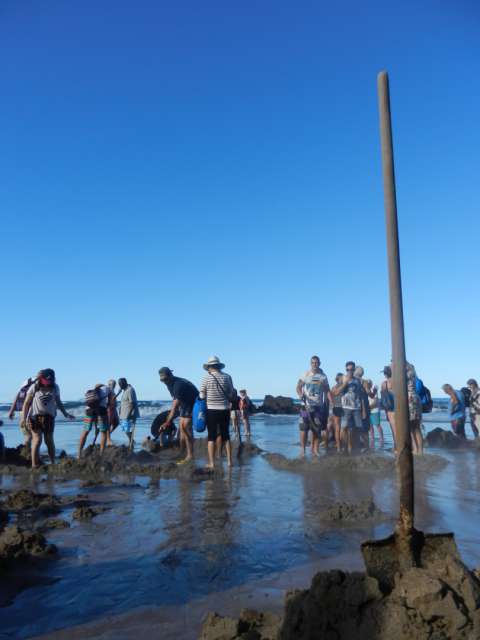
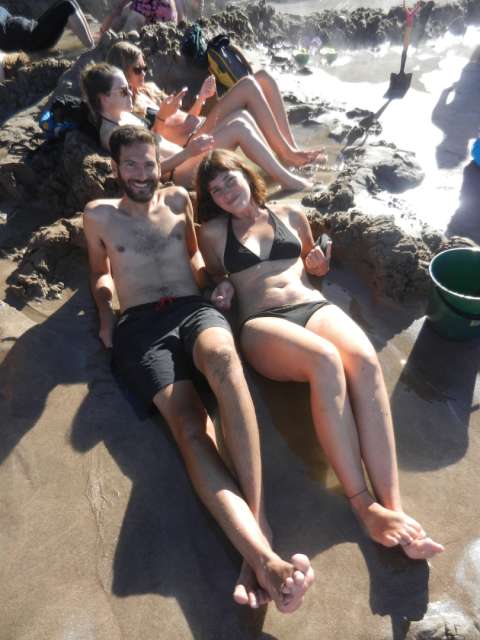
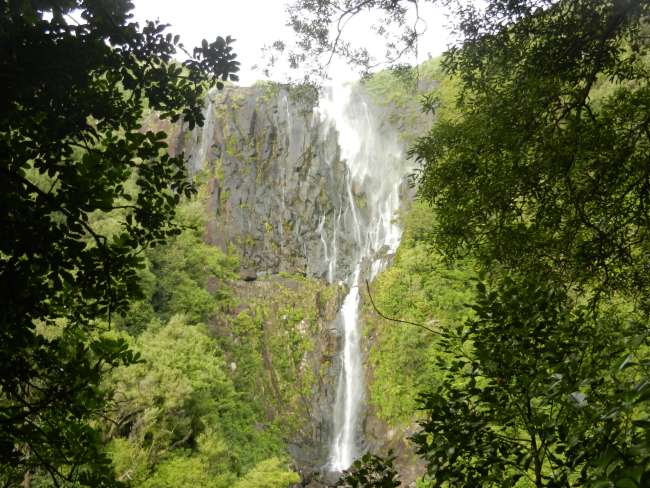
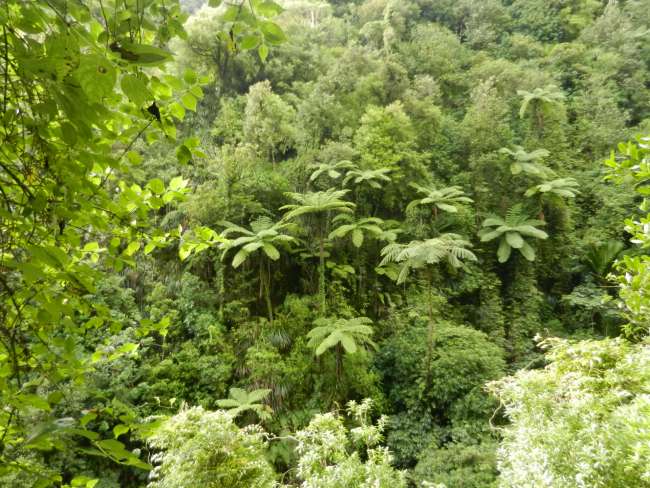
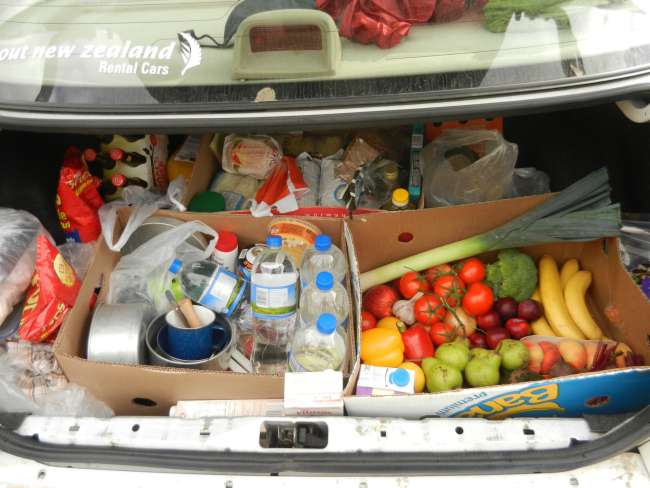
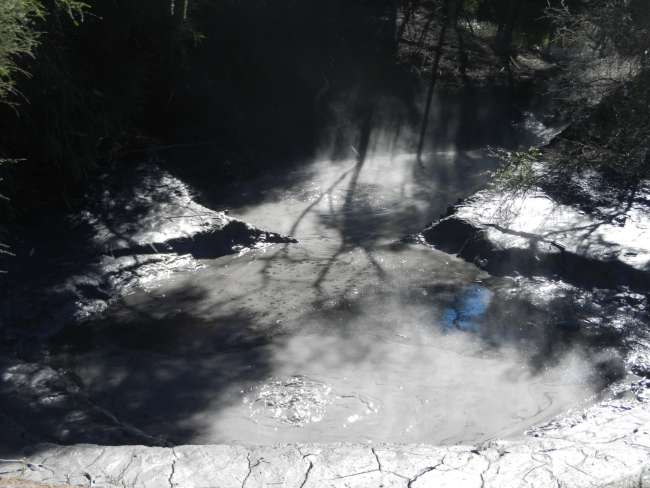
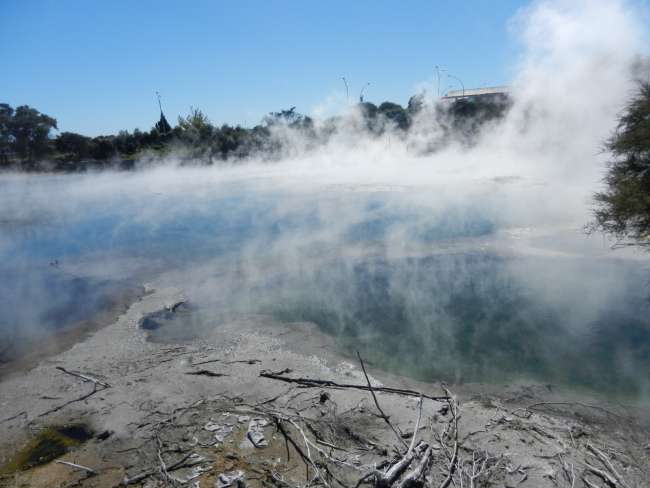

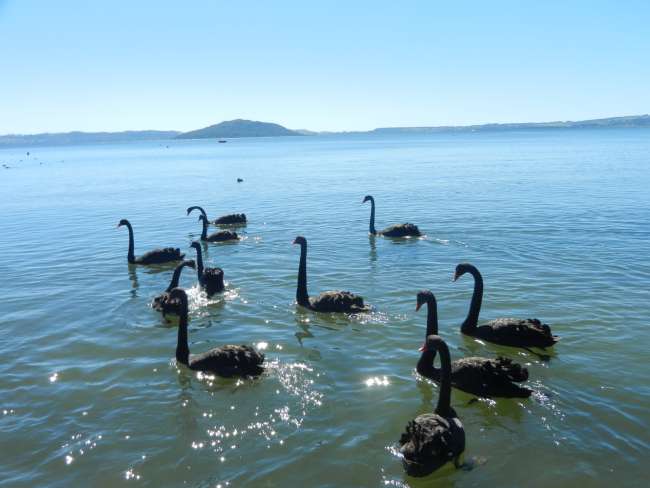
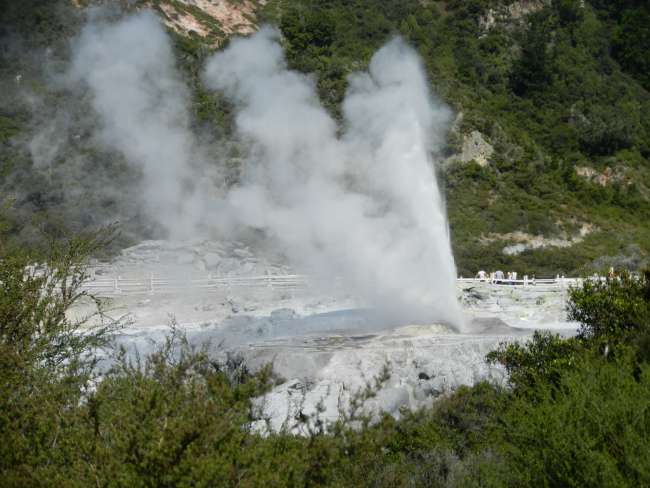
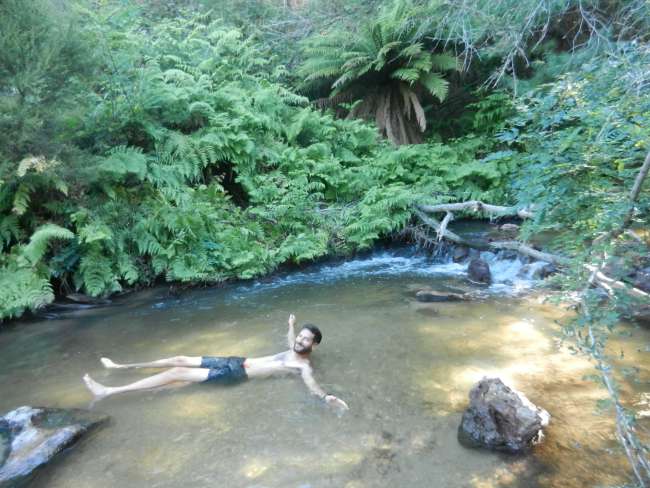
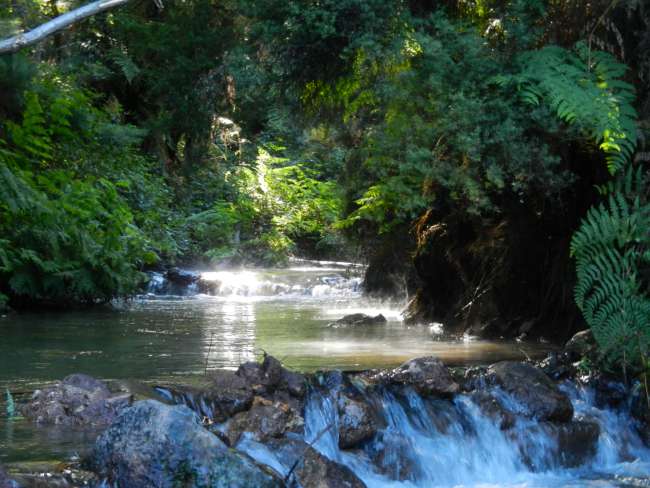
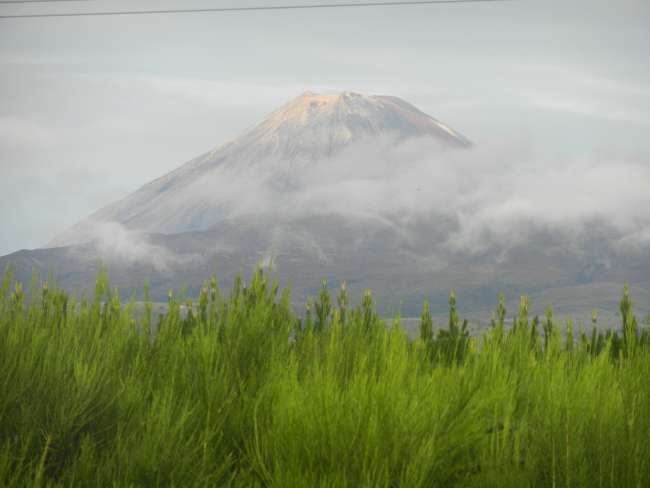
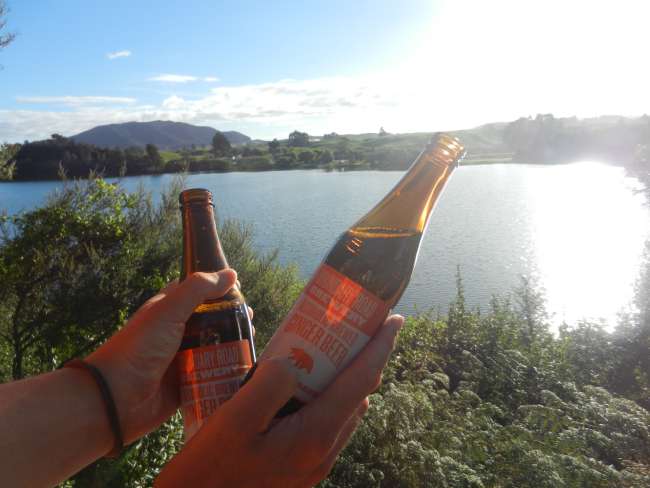
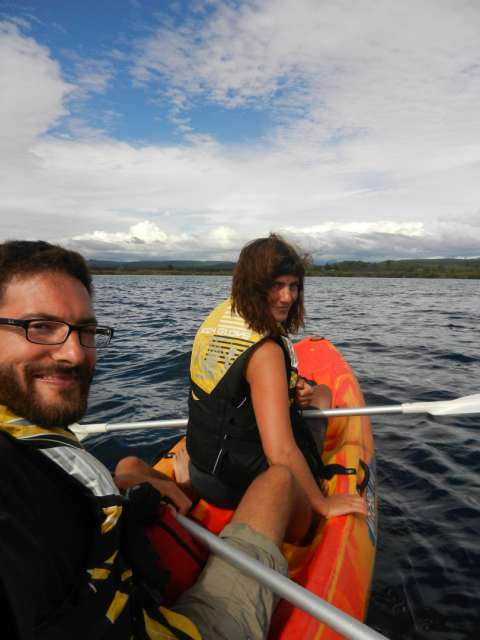
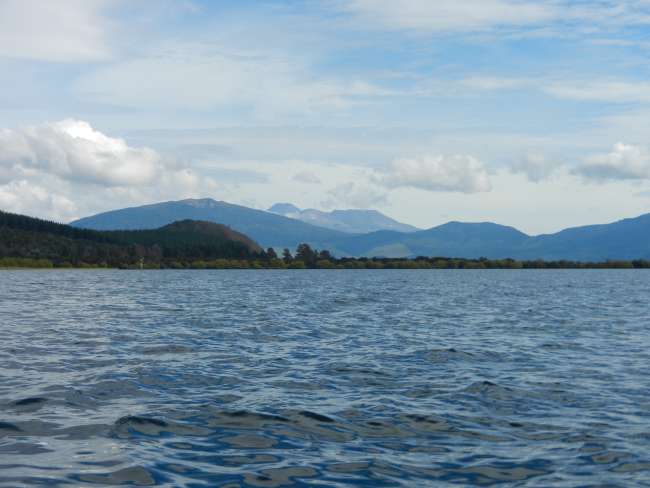
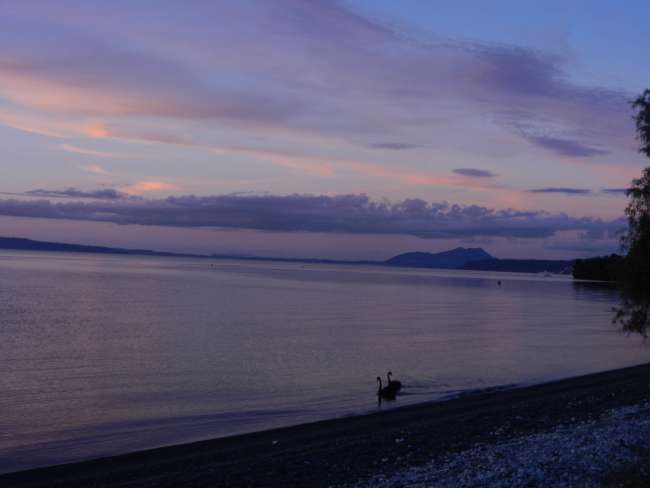
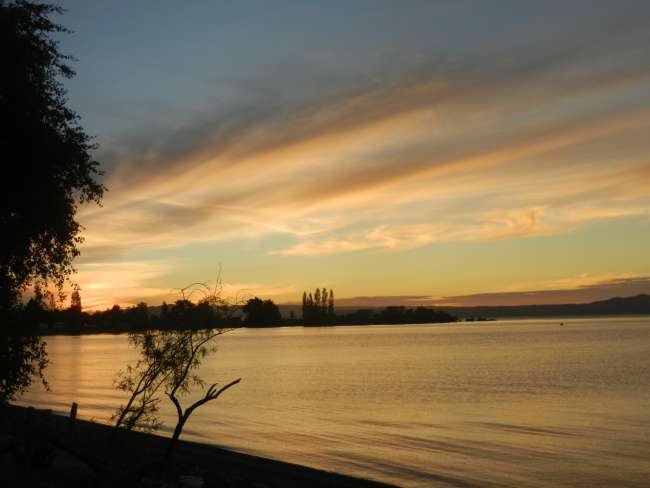
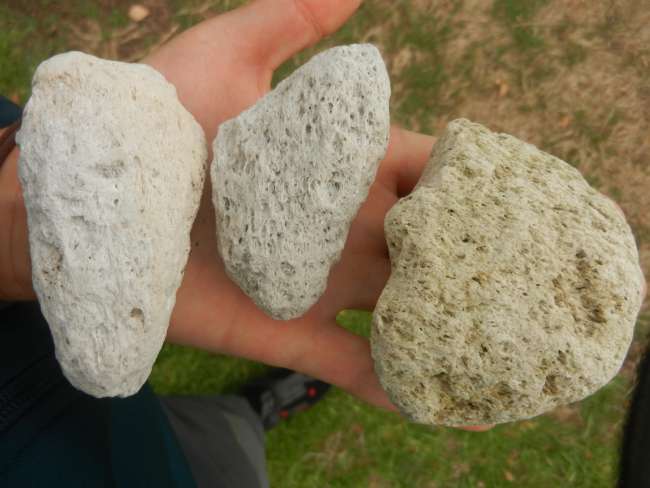
Subscribe to Newsletter
From Auckland, we drive north with our old Nissan Sunny to the Bay of Islands, a bay with over 140 small islands. It's pretty here, but all the tourist hustle and bustle around the bay seems a bit exaggerated to us. We take a boat to Urapukapuka Island and spend a day hiking there. It still rains lightly from time to time, but the weather is improving every day!
Then we head further north to Cape Reinga. We stay at Tapotupotu Bay, right by the sea, and the sun is shining! There is a beautiful coastal hike from the campground to the cape that is definitely worth it. Most people drive directly to the cape and miss this beautiful part. Cape Reinga itself doesn't seem to be anything special... but for the Maori, it has a special significance as they believe it is where the souls of the deceased begin their journey to the spiritual homeland. It is also where the Pacific Ocean and the Tasman Sea meet, which can create high and turbulent waves and symbolize the union of the masculine and feminine and the creation of life in Maori culture. Quite a meaningful place...
From the far north, we drive back towards Auckland and meet up with my dear colleague and her family in Waitakere Regional Park. They have been traveling here for several months and provide us with plenty of tips and provisions! There is a rugged black sand beach and many caves in the park where glowworms are said to be found. We search diligently but find none 😉
Our next destination is the Coromandel Peninsula. The highlight here is definitely Hot Water Beach. Armed with a shovel and bucket, you go there at low tide and can create a small pool with warm water thanks to the thermal activity! It's not exactly private, but it's quite funny ☺
In Rotorua, our next stop, there's a lot of geothermal action going on! There are bubbling mud pools, hot springs, and geysers. Of course, that attracts a lot of tourists, and the main attractions can only be seen for a lot of money. For even more money, you can also enjoy Maori dances and other cultural performances. We'll pass on that... Since $80 for a natural spectacle just seems unreasonable and excessive, we decide not to visit the mentioned attractions. But thanks to a tip, we were able to admire the country's largest geyser called Pohutu from outside the area! Of course, from a distance, but since we had never seen a geyser before, that was also impressive! The water is sprayed up to 30 meters high. And there are bubbling mud pools and smelly steam lakes for free and without tourist masses in a public park in the city. Of course, everything is smaller, but it's enough for us. In conclusion, in Rotorua, we hike in the Rainbow Mountains, see our first crater lake, and swim in the really hot thermal stream Kerosene Creek 👍
We continue south and reach the largest lake in the country, Lake Taupo. By the way, it's also a crater lake... I wonder how big the volcano must have been to have such a crater?! We do a little kayak tour on the lake and from the lake, we can already see the Tongariro National Park with its impressive volcanoes. Tomorrow, we will go there and start a four-day hike called Tongariro Northern Circuit. The weather is supposed to be bad... 😦 Not ideal for enjoying the mountain views. Well... we will tell you all about it ✌
By the way, we haven't seen a kiwi bird yet. They are nocturnal and shy. In addition, the little flightless bird was hunted a lot by the Maori in the past, and dogs and cats also hunt them. Furthermore, European settlers introduced possums from Australia in the 1850s, which also feed on the New Zealand national bird. All of this does not contribute to a stable population of the kiwi bird. The possums, which have multiplied like crazy, are understandably not liked here. Overrunning possums seems to be a kind of national sport 😮 even though it's not their fault. There are plenty of sheep and cows too... for every New Zealander, there are about 10 sheep 🐑
Yesterday, we finally found New Zealand kiwifruits in the supermarket! Until now, they were always from Italy here and in Australia. Can you imagine... but now it seems that the season for the originally Chinese fruit, which got its name from the kiwi bird, is starting here too.
The avocados grown here are super delicious! There are special fruit and vegetable shops where we wanted to buy fresh avocados. But the shop was permanently closed. However, there was a huge tree full of avocados in the parking lot, where we helped ourselves to some 😊
One thing that is really different from Australia is the number of tourists you meet. So many Germans, French, British, Americans, Japanese... the campsites are mostly full of tourists, and locals are rarer. Somewhere we read that 6 million tourists come here annually. Considering that there are only 4 million New Zealanders, that's pretty intense. In Australia, there were often local vacationers at the campsites, which was just cooler. Therefore, we're quite glad that we weren't here in the summer when it was even busier. By the way, Hobbiton is another tourist magnet that we're skipping because $80 for that also seems like a rip-off. Oh, have we mentioned that New Zealand is generally quite expensive? A pack of tobacco costs a whopping $50... 😂 We still can't believe it, but our occasional desire to smoke has definitely disappeared!
Desde Auckland conducimos con nuestro viejo Nissan Sunny rumbo norte a Bay of Islands, una bahía con alrededor de 140 pequeñas islas. Es muy bonito aquí, pero todo el ajetreo turístico alrededor de la bahía nos parece un poco exagerado. Tomamos un barco a la isla de Urapukapuka y pasamos un día haciendo senderismo allí. Todavía llueve ligeramente de vez en cuando, ¡pero el clima mejora cada día!
Luego nos dirigimos más al norte hacia el cabo Reinga. Nos alojamos en la bahía de Tapotupotu, ¡justo junto al mar y el sol brilla! Hay una hermosa caminata costera desde el camping hasta el cabo que definitivamente vale la pena. La mayoría de la gente va directamente al cabo en coche y se pierde esta hermosa parte. El cabo Reinga en sí no parece ser nada especial... pero para los maoríes tiene un significado especial, ya que creen que es donde las almas de los difuntos comienzan su viaje hacia la patria espiritual. También es donde se encuentran el océano Pacífico y el mar de Tasmania, lo que puede crear olas altas y turbulentas y simboliza la unión del masculino y femenino y la creación de vida en la cultura maorí. Un lugar bastante significativo...
Desde el extremo norte, volvemos hacia Auckland y nos encontramos con mi querida colega y su familia en Waitakere Regional Park. Han estado viajando aquí durante varios meses y nos dan muchos consejos y provisiones. Hay una playa de arena negra y muchas cuevas en el parque donde se dice que hay luciérnagas. Buscamos diligentemente pero no encontramos ninguna 😉
Nuestro próximo destino es la Península de Coromandel. Lo mejor aquí es definitivamente Hot Water Beach. Armados con una pala y un cubo, uno va allí durante la marea baja y puede crear una pequeña piscina con agua caliente gracias a la actividad termal. No es precisamente privado, pero es muy divertido ☺
En Rotorua, nuestra próxima parada, ¡hay mucha actividad geotérmica! Hay pozos de barro burbujeantes, manantiales de agua caliente y géiseres. Por supuesto, eso atrae a muchos turistas, y las principales atracciones solo se pueden ver pagando mucho dinero. Por aún más dinero, también se pueden disfrutar danzas maoríes y otras presentaciones culturales. Nosotros pasamos... Ya que $80 por un espectáculo natural simplemente parece irrazonable y excesivo, decidimos no visitar las mencionadas atracciones. ¡Pero gracias a un consejo, pudimos admirar el géiser más grande del país llamado Pohutu desde fuera del área! Por supuesto, desde lejos, pero como nunca habíamos visto un géiser antes, ¡también fue impresionante! El agua se pulveriza hasta 30 metros de altura. Y hay pozos de barro burbujeantes y lagos de vapor apestosos de forma gratuita y sin masas de turistas en un parque público de la ciudad. Por supuesto, todo es más pequeño, pero nos basta. Para concluir, en Rotorua, hacemos una caminata en las Rainbow Mountains, vemos nuestro primer lago de cráter y nadamos en el verdaderamente caliente arroyo termal Kerosene Creek 👍
Continuamos hacia el sur y llegamos al lago más grande del país, el lago Taupo. Por cierto, también es un cráter de un volcán... Me pregunto qué tan grande debió ser el volcán para tener un cráter así. Hacemos un pequeño recorrido en kayak por el lago y desde el lago, ya podemos ver el Parque Nacional Tongariro con sus impresionantes volcanes. Mañana iremos allí y comenzaremos una caminata de cuatro días llamada Tongariro Northern Circuit. Se supone que el clima será malo... 😦 No es ideal para disfrutar de las vistas de las montañas. Bueno... ya les contaremos ✌
Por cierto, todavía no hemos visto un ave kiwi. Son nocturnos y tímidos. Además, el pequeño pájaro no volador fue cazado mucho por los maoríes en el pasado, y los perros y los gatos también lo cazan. Además, los colonos europeos introdujeron zarigüeyas de Australia en la década de 1850, que también se alimentan del ave nacional de Nueva Zelanda. Todo esto no contribuye a una población estable de los kiwis. Las zarigüeyas, que se han multiplicado como locas, obviamente no son bienvenidas aquí. Atropellar zarigüeyas parece ser una especie de deporte nacional 😮 aunque ellas no tienen la culpa. También hay muchas ovejas y vacas... hay alrededor de 10 ovejas por neozelandés 🐑
¡Ayer por fin encontramos kiwis de Nueva Zelanda en el supermercado! Hasta ahora siempre eran de Italia aquí y en Australia. ¿Te lo puedes imaginar... pero ahora parece que la temporada de la fruta originalmente china, que debe su nombre al ave kiwi, también comienza aquí?
¡Aquí los aguacates cultivados son super deliciosos! Hay tiendas especiales de frutas y verduras donde queríamos comprar aguacates frescos. Pero la tienda estaba permanentemente cerrada. Sin embargo, había un árbol enorme lleno de aguacates en el estacionamiento, de donde nos servimos 😊
Una cosa que realmente es diferente de Australia es la cantidad de turistas que uno se encuentra. Muchos alemanes, franceses, británicos, estadounidenses, japoneses... los campamentos están principalmente llenos de turistas, y los lugareños son más raros. En algún lugar leímos que 6 millones de turistas vienen aquí anualmente. Si se considera que solo hay 4 millones de neozelandeses, eso es bastante intenso. En Australia, a menudo había turistas locales en los campamentos, lo cual era mejor. Por lo tanto, estamos bastante contentos de no haber estado aquí en verano, cuando había incluso más gente. Por cierto, Hobbiton es otro imán turístico que nos saltamos porque $80 también parecen un robo. ¡Ah, ¿hemos mencionado que Nueva Zelanda es generalmente bastante cara? Un paquete de tabaco cuesta la friolera de $50... 😂 Todavía no podemos creerlo, pero nuestro deseo ocasional de fumar definitivamente ha desaparecido!
Subscribe to Newsletter
Answer (2)
Rallye
Hi, mit der kiwi frucht ist es wie mit den deutschen äpfeln. Globalisierung halt. Wir verfolgen euch mit grossem interesse, da wir das nicht mehr selbst machen können. lasst es euch gut gehen am anderen ende welt. Fotos,fotos..... Lys
Ganz viel schönes und interessantes erlebt. Bravo und Respekt mich hätte allein die lange Flugreise von den ganzen Abenteuern abgehalten, schade.
Aber lasst es Euch beiden weiter gut 👍 gehen und lasst noch viel Interessantes folgen. Kuss 😘 Paul+Lys
Travel reports New Zealand
